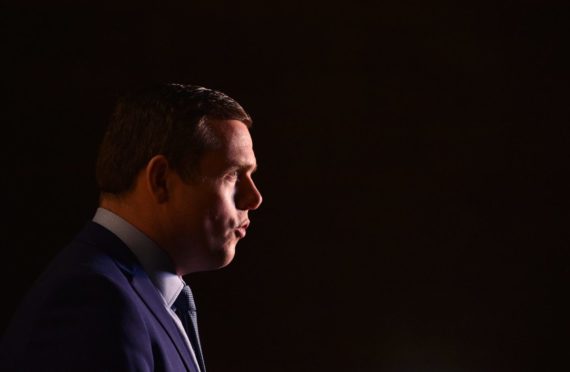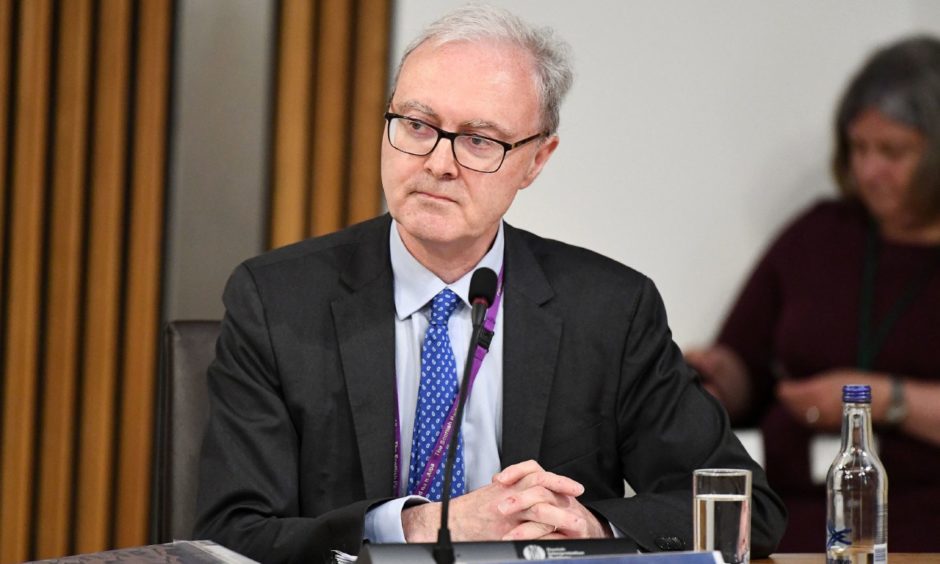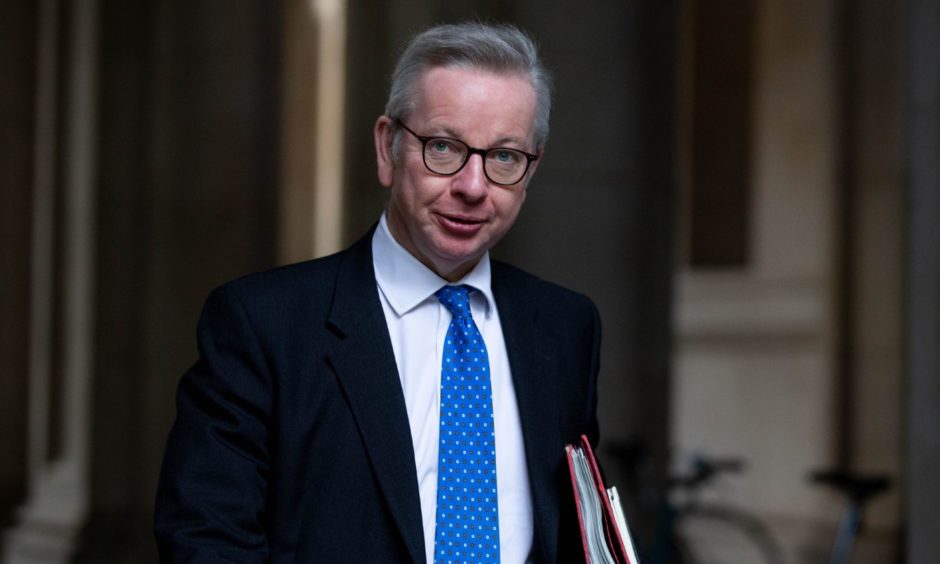Douglas Ross has said he expects the Lord Advocate to “uphold the competency of what the Scottish Government can and cannot do” and object to any new legislation to hold an independence referendum.
The Scottish Conservative leader believes Boris Johnson will reject any request to transfer powers to Holyrood to hold a new vote following Thursday’s Scottish Parliament election, despite the SNP claiming a “landslide” victory.
Nicola Sturgeon has said any such rejection would see her attempt to pass a referendum bill through Parliament without Westminster consent and dare the prime minister to challenge it at the Supreme Court.
However, Mr Ross argued the SNP leader could face a stumbling block closer to home as he would expect the Lord Advocate to advise against publishing any new legislation that might fall foul of the Scotland Act.
The Lord Advocate, a position currently held by James Wolffe QC, serves as both the chief legal adviser to Scottish Government ministers and chief prosecutor.
Under the 1998 Scotland Act – the legislation that established the Scottish Parliament – matters relating to the constitution, such as the union between Scotland and the rest of the UK, are “reserved” to Westminster.
Procedures in place
Speaking during a media briefing on Sunday, Mr Ross said he believes that if the Lord Advocate objects to the legislation being put forward, it will never see the light of day.
He said: “Clearly there are procedures in place both within the Scottish Government, that should only see them bringing forward legislation that is within the competency of the Scottish Parliament, and there are also procedures for the presiding officer.
“These are two crucial roles within Scottish democracy and I think people will look very closely at the advice they give in the intervening period if such a proposal is brought forward by the SNP.”
He added: “It is not within the competency of the Scottish Parliament to hold another independence referendum. In 2014, we had the gold standard which was one that had secured a Section 30 order.
“And I would expect the holder of the office of Lord Advocate to uphold the competency of what the Scottish Government can and cannot do.”
Mr Ross refused to say whether his party would be prepared to challenge the position of the new presiding officer, who will be elected by the Scottish Parliament on Thursday, if they provide an advisory ruling he disagrees with.
He said Nicola Sturgeon is “framing this as a battle she can force the UK Government into, to take the Scottish Government to court” over the legal powers to hold a new vote, and that this is to “distract from issues within her own party and disappointment from many members of the SNP that she has again been unable to secure a majority.”
Ms Sturgeon appeared to set herself on path for a constitutional showdown with Boris Johnson as early as next year as she appeared on the BBC’s Andrew Marr show on Sunday, saying she “desperately hoped” Covid-19 will have receded by then.
She said that would “work for that timescale” of a referendum in the first half of the parliament and “wouldn’t rule out” legislation being brought forward early next year.
Not going down that route
Cabinet Office minister Michael Gove said he does not anticipate going into the realms of legal disputes over a new referendum – something that would tie in with Mr Ross’s suggestion that the SNP is essentially bluffing over the move.
“We’re not going to go down the route of talking about independence or legal challenges or anything like that when our principal focus, our exclusive attention, is going on pandemic recovery,” Mr Gove told BBC Scotland’s Sunday Show.
Boris Johnson has previously said he would be willing to take the Scottish Government to the Supreme Court to stop it holding a second independence referendum without Westminster consent.
But Ms Sturgeon said it would be “absurd and outrageous if it ever got to that point” because it would mean the UK Government “refused to respect the democratic wish of the Scottish people” and was attempting to overturn democracy.
“This whole debate is predicated on a situation where the UK Government refuses to accept Scottish democracy and means the UK is no longer a union based on consent, and that somehow Scotland should be retained by force of law,” she said.
“If we get to that point, the implication of that is very grave indeed.”




